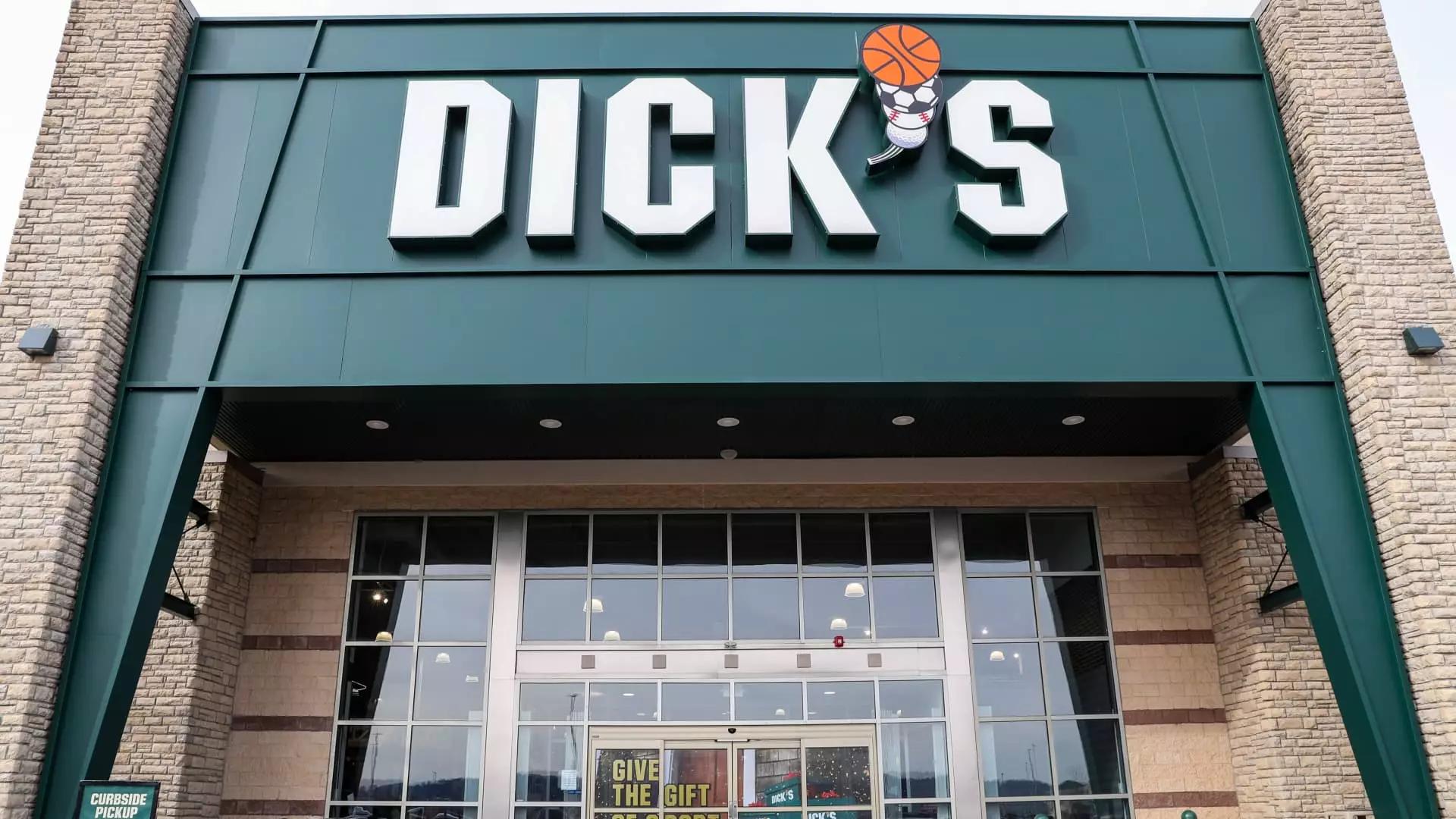In a surprising turn of events, Walmart, the iconic plethora of retail, reported a revenue of $165.61 billion, narrowly missing the $165.84 billion consensus forecast. A modest decline of 1% in shares might seem trivial on the surface, but it carries significant implications for consumer sentiment, particularly with management warning of price hikes due to tariffs. These pricing pressures pose existential questions for a retailer that has long prided itself on its commitment to providing low-cost goods to the average American. When consumers perceive an increase in costs, especially in essentials, it risks alienating its core base, potentially tipping a fragile economic balance into perilous waters.
The reality of suffering margins and sales shortfalls suggests a need for Walmart to pivot from its traditional model and embrace a more dynamic pricing strategy. If the retail titan fails to adapt, it may find itself not just competing against other retailers but fighting against its own legacy.
Shooting Blanks: Dick’s Acquisition Misfiring?
Meanwhile, Dick’s Sporting Goods underscores the growing trend of risky acquisitions. The company’s recent decision to purchase rival Foot Locker for $2.4 billion sent its stock plummeting 14%. Only in the dog-eat-dog world of corporate America could one find such optimism-laden self-destruction. While Foot Locker’s shares skyrocketed 85% on the news due to investor excitement, one must question the strategic foresight of Dick’s executives. In an era where consumer preferences shift quicker than fashion trends, is this acquisition a strategic masterstroke or an indication of desperation?
In the fiercely competitive landscape of retail sports goods, creating value through acquisition may, in fact, dilute Dick’s brand equity rather than enhance it. This begs broader contemplation regarding the sanity of using financial resources for ill-conceived purchases—not to mention the potential backlash from consumers who prioritize unique brand identities over conglomerate ownerships.
A Health Investment Gone Awry: UnitedHealth’s Setback
UnitedHealth’s stock took a staggering dive of 15% amid a Justice Department investigation related to alleged Medicare fraud. For an industry titan that has long been viewed as a cornerstone of the health insurance sector, such allegations undermine consumer trust, a commodity even more valuable than profits. Facing an intraday low not seen in over five years, UnitedHealth serves as a cautionary tale: adherence to ethical standards is as critical as financial performance.
This scandal raises not only concerns for shareholders but also for regulators and policymakers, highlighting the urgent need for reform in the industry to maintain integrity. The healthcare provider’s predicament further illustrates the volatile interplay between corporate interests and public welfare.
Technology’s Faithful versus Fallacy: Fiserv and Cisco
The dichotomy within the technology sector is impossible to ignore, as Fiserv faltered with a significant 13% drop in stock value, attributing sluggish growth to its Clover business. In contrast, Cisco excelled with an impressive 6% uptick, fueled by robust earnings forecasts and a well-received finance chief’s retirement announcement. Herein lies the crux of the issue: technology today can oscillate dramatically between growth and decline in a matter of quarters.
Leadership transparency and accountability are crucial in this environment. Companies like Cisco gain merit by continuously innovating, while others like Fiserv find themselves stagnant, serving as a reminder of the importance of proactive business strategy when projecting growth.
External Pressures: The Squeeze of Market Dynamics
On international fronts, Alibaba’s stock falling 7% due to missed fiscal targets reinforces an unsettling reality—in a globally interconnected economy, even the most robust players are not immune to cyclical downturns. While boasting a staggering 279% year-on-year growth, questions about sustainability loom large when grappling with macroeconomic volatility and consumer sentiment challenges.
This scenario underscores a broader caution—market dynamics play a key role in corporate health, and among those exposed is JetBlue, whose shares fell 4% following a downgrade from Raymond James. Similarly, Alcoa’s slip due to UBS’s downgrade forces investors to reconsider assumptions around stable valuation in an uncertain economic climate.
Emerging Opportunities in Chaos: Boot Barn and CoreWeave
In a paradoxical twist, amidst the chaos, Boot Barn showcased resilience with an impressive 17% surge despite fiscal fourth-quarter misses, signaling that agility and timely share repurchases may be the panacea for corporate survival in turbulent times. Analogously, CoreWeave’s stock rose by 5% post-earnings, reflecting optimism about the future in a landscape where so many flounder.
The brighter avenues amidst impending pressures serve as a poignant reminder: in business, adaptability and foresight remain the linchpin of future prosperity, even when facing daunting market realities.

